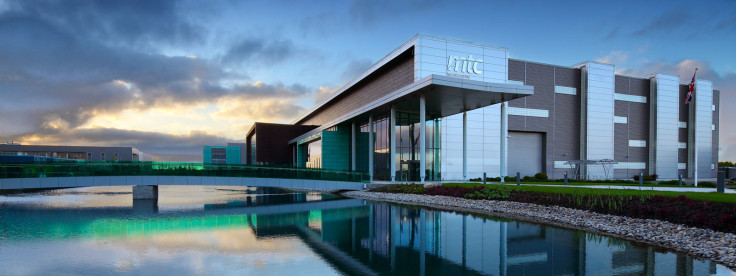UK government invests £100m into developing 3D printing in aerospace technologies

The UK government is making a strong push into developing 3D printing's potential in aerospace, by investing £100m ($158m, €141m) into a new research centre in Coventry, as well as launching a competition, giving £10m funding to aerospace firms.
Small business minister Anna Soubry opened the £60m Aerospace Research Centre and National Centre for Net Shape and Additive Manufacturing in Coventry on 22 June, which is based at the existing Manufacturing Technology Centre (MTC).
The MTC is one of nine centres across the UK which is designed to help companies take technologies developed in academic research institutes and bring them to market, and the one in Coventry will now take a special interest in 3D printing.
3D printing, also known as additive manufacturing, has the power to transform manufacturing.
It is already making inroads in the aircraft industry as plastic parts are being used to replace traditional metal fixtures in planes, but it is now coming to space too.
In April, the Boeing-Lockheed Martin joint venture United Launch Alliance (ULA) told IBTimes UK that it is now able to save $1m a year by switching to manufacture components using 3D printing.
The new research centre will be used to develop 3D printed components for aircraft engines and landing gear, as well as automotive and medical devices.
Innovate UK running £10m competition for small businesses
The UK government's innovation funding agency Innovate UK has also launched a new competition worth £10m aimed specifically at small businesses.
The game-changing technologies for aerospace competition opens for registration on 29 June and closes on 16 September, while the deadline for feasibility studies is 5 November 2015.
Innovate UK would like companies and universities that are not from the aerospace sector to send in proposals that solve key challenges in the aerospace industry using science, engineering and technological innovation, and firms are expected to collaborate with other businesses or academic institutes.
"Government and industry are working together to keep Britain at the forefront of the global aerospace market. We are currently second only to the United States, but there is more to do and it is important that we continue to invest in research and development, and develop groundbreaking technologies," Soubry said.
"Demand for new aircraft is at record levels – around 45,000 new aircraft and 40,000 helicopters are needed between now and 2032, worth more than $5 trillion. This will provide billions of pounds of work to the UK economy given our leading capability in wings, engines, helicopters, advanced systems and services."
Funding granted to research advanced production and assembly
At the same time, the government and industry's joint commitment to aerospace research and development, which is guided by the Aerospace Technology Institute (ATI), has granted funding to four projects by aerospace firms.
French aircraft manufacturer Airbus has been granted £7.2m to research ways to make wings slippery, to remove imperfections on wing surfaces which cause drag.
In addition, five partners led by Bournemouth-based Meggitt have also been granted £5m to work out how Internet of Things technology can be applied to aircraft factory production.
US firm Spirit AeroSystems is also working together with Kent-based firm Aeromet and the University of Sheffield's Advanced Manufacturing Research Centre (AMRC) to research how to automate plane assembly technologies, and they have been granted £6.4m.
And finally, North Carolina's UTC Aerospace Systems, also working with AMRC, has been granted £4.4m to research how production lines can be set up to manufacture advanced composite products at a low cost and at a high volume.
© Copyright IBTimes 2025. All rights reserved.






















